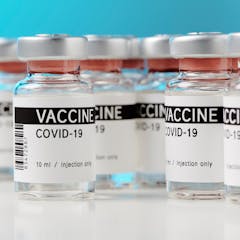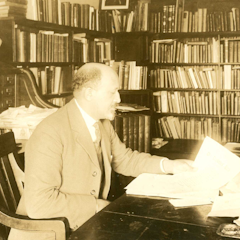
Artículos sobre Charles Darwin
Mostrando 21 - 40 de 84 artículos

First published 150 years ago, this work is shaped by Victorian-era sexual and racial stereotypes. But at a time when other evolutionists stressed humanity’s uniqueness, Darwin emphasised our ‘lowly nature’.

Smart people can have really bad ideas – like selectively breeding human beings to improve the species. Put into practice, Galton’s concept proved discriminatory, damaging, even deadly.

When allocating resources, we prioritize members of the social groups we belong to, rather than including others in our allocations. This will determine how the COVID-19 vaccine is distributed.

As editor of the magazine for 24 years, Du Bois featured articles about biology, evolution, archaeology in Africa and more to refute the rampant scientific racism of the early 20th century.

Local adaptation allows plants and animals to thrive in a diversity of places. Sometimes adaptation sharpens patterns of where organisms live, but 85% of the time, it creates a more homogeneous world.

CRISPR isn’t a tool to fix social problems.

In the television show ‘The Handmaid’s Tale,’ Charles Darwin’s ‘Descent of Man’ makes a cameo — and its appearance makes a comment on how Gilead functions.

In science, we look at the evidence and try to find the theory that best explains it. And that’s what happened when it came to figuring out evolution.

If you go by editorial cartoons and T-shirts, you might have the impression that evolution proceeds as an orderly march toward a preordained finish line. But that’s not right at all.

Scrapping the idea of a species is an extreme idea – but perhaps a good one.

One reason for the likes of the anti-vaxxers movement is a misplaced faith in Mother Nature.

There is an urgent need to reconsider the importance of diversity. It is not a simple wealth. It is both a property of the living and an essential condition for its survival.

It can actually be very tricky to define a species, but in the 1900s, scientists found a pretty good way.

Nature doesn’t always make the things we need so three Nobel Prize winners figured out how to fast-track evolution in the lab to create medicines, biofuels and industrial chemicals for modern life.

Was Darwin inspired by the tropical wildlife of his travels to discover natural selection? Actually, pigeons, worms and barnacles were far more prominent in his thinking.

An evolutionary biologist visits the remote jungle mountaintop where a little-known naturalist wrote his insightful paper about the mechanisms of evolution that spurred on a rivalrous Charles Darwin.

Harnessing the awe-inspiring living light and power of bioluminescent organisms could change the human world.

In this age of the pseudo-factual, its more important than ever to acquaint ourselves with the foundations of the scientific tradition, such as Darwin’s Origin of Species.

A theory is not meant to be a final statement of how things are, but just the latest stage of ongoing research and new discoveries.

Humans have long been trying differentiate themselves from the rest of the biological world. Is it because we’re superior, or just insecure?
